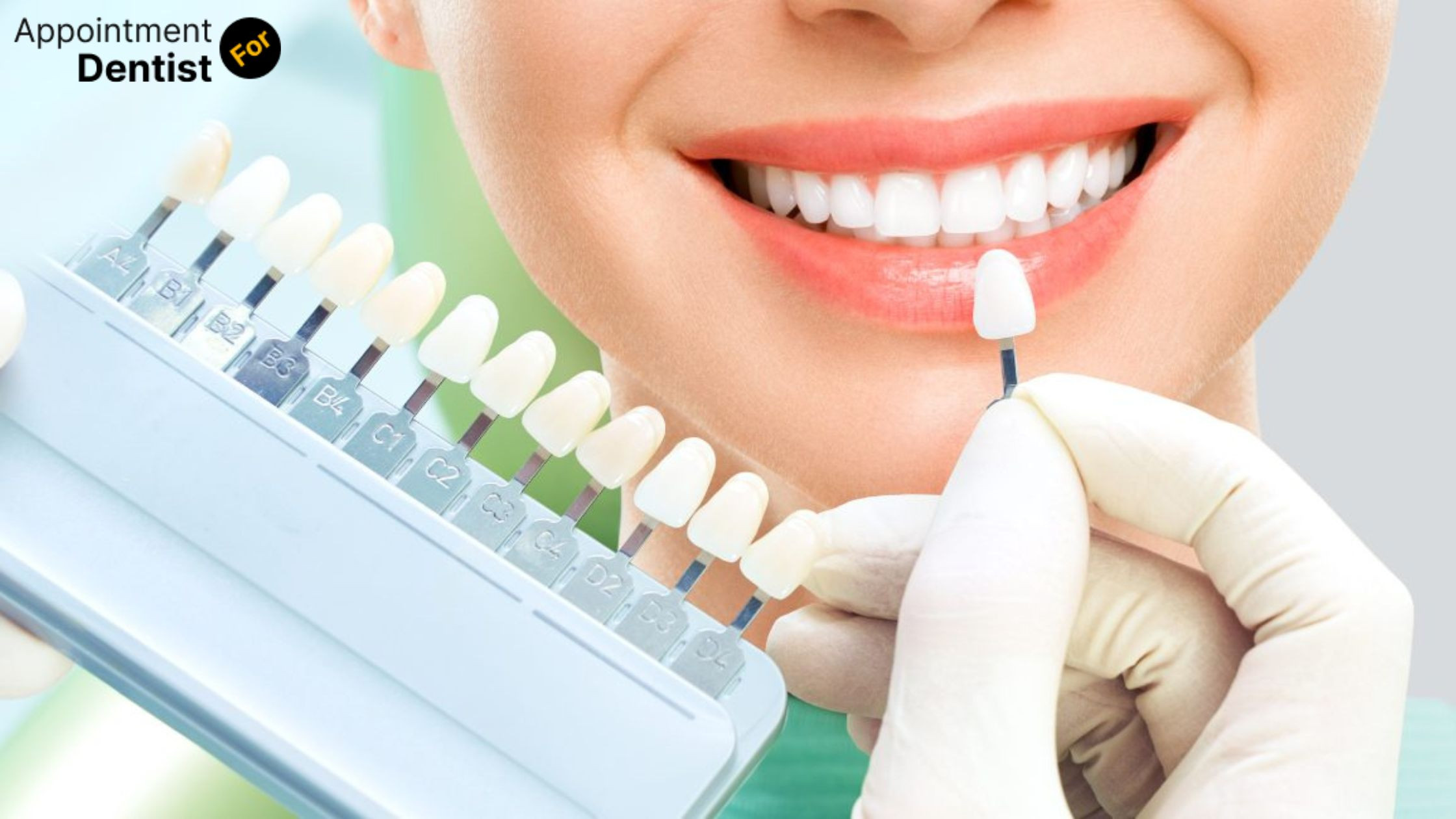The Ultimate Guide to Teeth Whitening: Methods, Benefits, and Risks
Posted on July 12, 2024 by Admin

The Ultimate Guide to Teeth Whitening: Methods, Benefits, and Risks
Teeth whitening has become a popular cosmetic dental procedure to enhance the appearance of teeth by reducing stains and discoloration. From professional treatments to over-the-counter products, there are various methods available to achieve a whiter smile. In this comprehensive guide, we will explore the different teeth whitening methods, their benefits, potential risks, and considerations to help you make an informed decision about enhancing your smile.
Understanding Teeth Discoloration
Causes of Teeth Staining:
- Extrinsic Stains: Caused by consumption of staining substances like coffee, tea, red wine, and tobacco.
- Intrinsic Stains: Result from factors within the tooth structure, such as aging, certain medications (like tetracycline), and trauma.
Methods of Teeth Whitening
-
Professional Teeth Whitening:
- In-Office Whitening: Conducted by a dentist, this procedure involves applying a high-concentration bleaching agent (usually hydrogen peroxide or carbamide peroxide) directly to the teeth, often in combination with light or heat to enhance effectiveness. It provides quick and noticeable results in a single visit.
- Take-Home Kits: Dentists may provide custom-fitted trays and professional-strength bleaching gel for at-home use. This method allows for gradual whitening over a period of days or weeks, under the dentist's guidance.
-
Over-the-Counter (OTC) Products:
- Whitening Toothpastes: These contain abrasives or gentle polishing agents to remove surface stains. They may also contain mild bleaching agents like hydrogen peroxide.
- Whitening Strips and Gels: OTC strips and gels are applied directly to the teeth using a thin strip or brush. They typically contain hydrogen peroxide or carbamide peroxide in lower concentrations compared to professional products.
-
Natural Remedies:
- Activated Charcoal: Charcoal products claim to absorb surface stains and toxins, although scientific evidence supporting their effectiveness and safety is limited.
- Baking Soda: Used in toothpaste or homemade remedies, baking soda acts as a mild abrasive to scrub away surface stains.

Benefits of Teeth Whitening
- Enhanced Aesthetics: Teeth whitening can significantly improve the appearance of teeth, boosting self-confidence and overall attractiveness.
- Non-Invasive Procedure: Most teeth whitening methods are non-invasive and do not require extensive dental work.
- Customizable Options: Professional treatments offer customized solutions tailored to individual needs and preferences.
Must Read: Things You Should Know About Dental Insurance
Risks and Considerations
- Tooth Sensitivity: Temporary tooth sensitivity is a common side effect of teeth whitening, especially with higher concentrations of bleaching agents. It usually resolves after treatment.
- Gum Irritation: Overuse or improper application of whitening products can cause gum irritation or sensitivity. Following instructions and consulting with a dentist can minimize this risk.
- Temporary Results: Whitening treatments may require periodic touch-ups to maintain results, especially with lifestyle factors that contribute to staining (e.g., coffee, smoking).
Choosing the Right Option
- Consider Your Goals: Determine whether you prefer rapid results with in-office treatments or gradual whitening with at-home kits.
- Consultation with a Dentist: A dental professional can assess your oral health, discuss your expectations, and recommend the most suitable whitening method based on your dental history and sensitivity levels.
- Maintenance and Longevity: Adopting good oral hygiene practices and avoiding foods and habits that cause staining can prolong the results of teeth whitening treatments.
Also Read: 7 Mistakes to Avoid When Choosing a Dental Plan
Conclusion
Teeth whitening offers a safe and effective way to enhance your smile and improve self-confidence. Whether you opt for professional treatments or over-the-counter products, understanding the methods, benefits, and potential risks is essential for achieving optimal results. Consultation with a dentist ensures personalized care and guidance throughout the whitening process, leading to a brighter, healthier smile that you can proudly share. By incorporating teeth whitening into your dental care routine responsibly, you can enjoy the benefits of a radiant smile for years to come.
Faqs
-
1. Is teeth whitening safe?
Yes, teeth whitening is generally safe when performed under the supervision of a dental professional or following manufacturer instructions for over-the-counter products. It may cause temporary sensitivity or gum irritation, which typically resolves after treatment.
-
2. How long does teeth whitening last?
The duration of teeth whitening results varies depending on factors such as lifestyle habits (like smoking or drinking coffee), oral hygiene practices, and the whitening method used. Typically, results can last from several months to a few years with proper maintenance.
-
3. Can everyone whiten their teeth?
While teeth whitening is effective for most people, it may not be suitable for individuals with certain dental conditions, extensive dental restorations, or allergies to whitening agents. Consulting with a dentist is recommended to determine candidacy for whitening treatments.
-
4. Will teeth whitening make my teeth sensitive?
Temporary tooth sensitivity is a common side effect of teeth whitening, especially with higher concentrations of bleaching agents. However, it usually subsides shortly after treatment or with the use of desensitizing products recommended by your dentist.
-
5. How can I maintain my whitened teeth?
To maintain whitened teeth, practice good oral hygiene by brushing twice daily, flossing regularly, and using a whitening toothpaste. Avoid or minimize consumption of staining foods and beverages, and consider periodic touch-ups as recommended by your dentist.
Recent Post
- The Importance of Oral Health Education for Children
- How to Choose the Right Orthodontic Treatment for Adults
- The Link Between Oral Health and Stroke Risk
- How to Address and Prevent Gum Recession
- Innovations in Dental Anesthesia: Pain-Free Procedures
- The Role of Saliva in Oral Health: Functions and Disorders
- Exploring Holistic Dentistry: What You Need to Know
- How Oral Health Affects Your Immune System
- The Benefits of Using Dental Probiotics
- Oral Health and Pregnancy: Myths and Facts